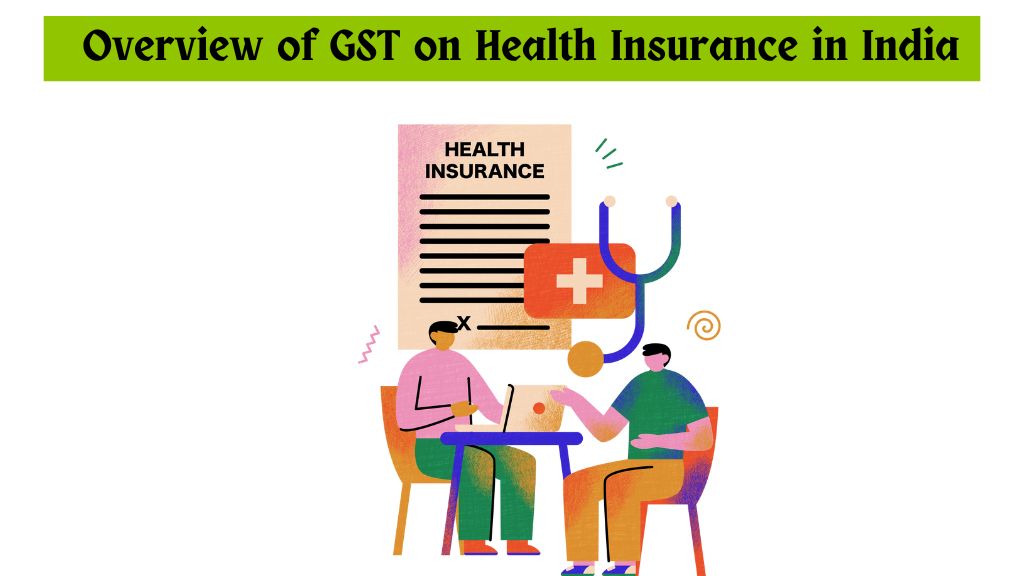In recent years, health insurance has become an essential
aspect of financial planning for individuals and families in India. As medical
costs continue to rise, health insurance provides a safety net against
unexpected healthcare expenses. However, like many other services in India,
health insurance is subject to the Goods and Services Tax (GST). This article
explores the implications of GST on health insurance, its impact on
policyholders, and the broader context within which these taxes operate.
What is GST?
The Goods and Services Tax (GST) is a comprehensive,
multi-stage, destination-based tax that is levied on every value addition.
Introduced on July 1, 2017, GST replaced a multitude of indirect taxes
previously levied by both the central and state governments, such as service
tax, VAT, excise duty, and others. GST is categorized into four main types:
1. Central GST (CGST) – Levied by the Central Government on
intra-state transactions.
2. State GST (SGST) – Levied by the State Government on
intra-state transactions.
3. Integrated GST (IGST) – Levied by the Central Government
on inter-state transactions.
4. Union Territory GST (UTGST) – Levied by the Union
Territories on intra-UT transactions.
GST is designed to simplify the tax structure, increase
compliance, and ensure uniformity across the nation.
GST on Health
Insurance
Health insurance in India is subject to GST at a rate of 18%.
This is categorized under services, and the rate has been uniform since the
inception of GST. The 18% rate is applicable to all types of health insurance
policies, including individual health plans, family floater plans, critical
illness policies, and senior citizen health insurance plans.
Breakdown of GST on
Health Insurance Premiums
When a policyholder pays a premium for health insurance, the
total amount includes the base premium and the applicable GST. For instance, if
the base premium of a health insurance policy is INR 10,000, the GST at 18%
would be INR 1,800. Thus, the total premium payable would be INR 11,800.
Here’s a simplified breakdown:
- Total Premium: INR 11,800
Impact of GST on
Policyholders
The introduction of GST at an 18% rate has had several implications
for policyholders:
1. Increased Cost: One of the immediate impacts of GST on
health insurance is the increased cost of premiums. Before GST, health
insurance premiums were subject to a service tax of 15%. The implementation of
GST at 18% effectively increased the cost of health insurance by 3%.
2. Affordability Concerns: The increased cost may affect the
affordability of health insurance, especially for individuals from lower and
middle-income groups. Higher premiums might deter some people from purchasing
adequate health insurance coverage.
3. Tax Benefits: Despite the higher premiums, policyholders
can still avail of tax benefits under Section 80D of the Income Tax Act, 1961.
This section allows deductions for premiums paid towards health insurance for
oneself, spouse, dependent children, and parents. For individuals below 60
years, the deduction limit is INR 25,000, and for senior citizens, it is INR
50,000.
4. Impact on Insurance Penetration: India already has a low
insurance penetration rate compared to other countries. The increase in premium
costs due to GST could slow down the growth of insurance penetration in the
country.
GST Compliance for
Insurers
Health insurance companies are required to comply with GST
regulations, which involve:
1. Registration: Insurers must register under the GST regime
and obtain a GSTIN (GST Identification Number).
2. Invoicing: They need to issue proper GST-compliant
invoices to policyholders.
3. Tax Collection and Remittance: Insurers must collect GST
from policyholders and remit it to the government within the stipulated
timelines.
4. Filing Returns: Regular filing of GST returns is
mandatory, detailing the tax collected, input tax credit availed, and tax paid.
Input Tax Credit (ITC)
One of the significant features of GST is the provision of
Input Tax Credit (ITC). Insurers can avail of ITC on the GST paid on the
procurement of goods and services used for providing insurance services. This
helps in reducing the overall tax burden on insurance companies, though the
benefits are not directly passed on to the policyholders.
Future Outlook
As healthcare costs continue to rise and the government
pushes for greater insurance penetration, there is an ongoing debate about the
GST rate on health insurance. Some industry experts and policymakers advocate
for a lower GST rate or even an exemption for health insurance to make it more
affordable and accessible.
Conclusion
While GST Registration has streamlined the tax structure in India, its
impact on health insurance premiums has raised concerns about affordability and
accessibility. The 18% GST rate has led to higher costs for policyholders,
potentially affecting insurance penetration rates in the country. However, the
tax benefits under Section 80D provide some relief to policyholders.
Health insurance remains a crucial financial tool, and
understanding the implications of GST on it is essential for making informed
decisions. As the insurance industry and policymakers navigate the complexities
of GST, the focus should remain on balancing tax revenues with the need to make
health insurance affordable for all segments of society.

